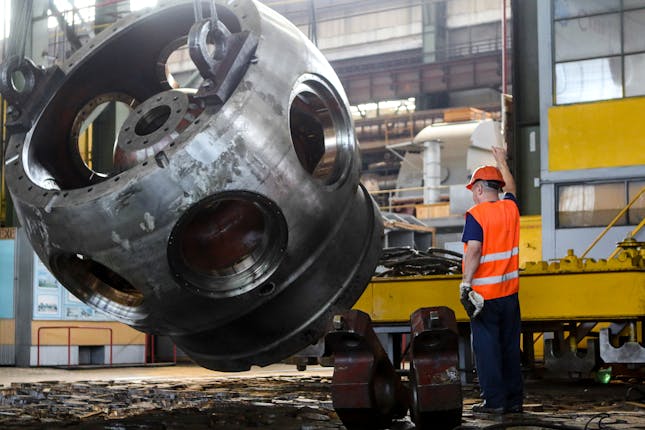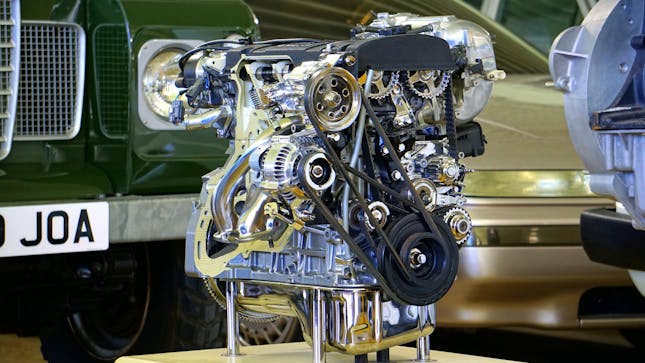If you’re thinking of attending your first equipment or machinery auction, it’s important to carefully evaluate several important factors beforehand to ensure a successful bidding experience.
Equipment auctions can offer great deals on various vehicles, attachments, and industrial assets, but they also require adequate preparation. Going into an auction unprepared can lead to mistakes like overpaying for something you don’t need or missing out on a good deal due to a lack of knowledge.
This article will outline some of the key considerations to evaluate before attending equipment and machine auctions. We’ll discuss items like inspecting the condition of auction items, understanding auction processes, researching market values, assessing financing options, and more.
Inspect Equipment Thoroughly Before Bidding
When bidding on used equipment at an auction, it’s crucial to carefully inspect each item yourself before placing a bid. Take the time to thoroughly look over the condition of important components like engines, hydraulic systems, undercarriages, electronics, and any attached tools or equipment.
It is also important to note any issues, wear and tear, repairs needed, or missing/broken pieces. Auction items are sold “as is,” so it’s important to be aware of potential maintenance costs after purchase. Don’t rely solely on the seller’s description – inspect thoroughly with your own knowledge and hire an independent inspector if needed.
Understand the Auction Process and Terms
Familiarize yourself with how the specific auction you’re attending is run. Is it an open live bidding auction? Or online bidding?
Find out about the bidding process, payment terms, buyer’s fees or premiums added to the sale price. Ask if there are any minimum bid increments.
Also, inquire about the timeline – when is the final payment due? When can you pick items up? Understand if you have options like paying a deposit day off and financing the remainder. Review all terms and conditions to avoid any surprises on auction day.
Research Market Values and Recent Sale Prices
Do your research on current market values for the type and condition of equipment you’re interested in bidding on. Check sites like https://asset-sales.com/machine-auctions/ for information on market values based on the type, condition, hours, attachments, and recent repairs of equipment. Filter relevant auction listings by these attributes and take note of the average as well as high and low sale prices.
Comparing the prices of similar past sales to your target equipment will help you assess what constitutes a fair bid and identify a good deal. Solid market research in this way prevents you from overpaying at auction.
Assess Your Budget and Financing Options
Before attending an auction, determine your maximum budget and how much you can spend upfront versus finance. Research financing options from banks, sellers, or third parties who may offer loans.
You can also get pre-approved, so you aren’t outbid due to lack of immediate funds. You’ll also need money aside for extra fees, repairs, transportation etc. Come prepared within your means to avoid costly bids you can’t follow through on.
Read Equipment Specifications and Documentation
Thoroughly read available specs and documentation on any equipment you’re considering. Note things like hours, horsepower, operating capacity, and attachments included. Check service records for repairs and maintenance.

Make sure specifications line up with the item and what you need it for. Keep documentation for your records post-purchase. Don’t rely only on seller info—use documentation to compare machine details pre- and post-auction.
Consider Warranty and Title Information
Inquire about warranties included, if any. Understand coverage lengths and limitations. Also, examine the title—get a title history report if possible. Make sure the title is clear of any lien before bidding. Consider an independent title check post-auction as well. Both title and warranty details can significantly impact purchase price calculations and your post-auction ownership experience.
Plan Your Bidding Strategy in Advance
Before the auctioning, decide your maximum bids based on research and the auction listing provided. Know if you want to start bidding conservatively and build up or go strong from the start. Plan increment increase amounts if bids need to go higher.
Consider if you’ll use a bidding agent if unable to attend in-person. Rehearse your strategy to stay within budget and win the items you want. Bring back up financing approval in case you go over estimates.
Arrange Transportation and Delivery
If purchasing large equipment, make preparations to get it from the auctioning site. Confirm methods available, like loading at auction or paid transport. Verified equipment can legally and safely travel on local roads.
Get permits in place and hire transport companies as needed well ahead of auctioning day. Factor transport costs into your budget to avoid delays after purchase.
Know Your Local Sales Tax Regulations
Find out if sales tax applies, the percentage in your area, and who remits – buyer or seller. Some states charge lower tax rates on farm equipment. Consider your equipment’s final destination, as taxes vary by location. Have your sales tax certificate ready if applicable. Contact your state’s department for clarification to budget accurately for all potential costs.
Consider Having Equipment Inspected By a Professional
For large, complex or high-value equipment, it’s wise to hire a professional mechanic or inspector to evaluate the condition prior to bidding thoroughly.
A pre-purchase inspection allows them to closely examine the equipment for any issues you may miss and advise you on potential repair costs. They can uncover expensive problems that a pre-purchase inspection may reveal, saving you from an unsatisfying purchase.
With their expertise, inspectors provide peace of mind and valuable insights to support your
maximum bid decision. To learn more about scheduling a pre-purchase inspection, click here.
Be Prepared For the Day of the Auction
On auctioning day, arrive early to look over the final lots. Bring your paperwork, method of payment, and driver’s license. Know what’s being auctioned in what order. Bid signs/methods vary, so understand the process thoroughly beforehand.
Scope out other interested buyers to gauge competition. Have your maximum bids planned to act quickly. Stay focused, and don’t get caught up in bidding frenzies over initial estimates.
Additional Tips for a Successful Equipment Auction
Consider bringing a friend for a second opinion. Don’t get distracted by others’ bidding habits.
Survey the whole auction before zeroing in on targeted items. Know when to walk away from bids going over your comfort zone. Register well ahead of auctioning day to allow for any
requirements. Follow up promptly on purchases regarding ownership transfer, billing and transport.
Key Takeaways:
Taking the time to properly research and evaluate key factors before participating in an equipment or machinery auction can help ensure a successful bidding experience.
By thoroughly inspecting items, understanding auction processes, assessing market values and your budget, and developing a clear bidding strategy, buyers can feel confident in their decisions on auction day. Remember to also plan for transportation, taxes, warranties and more.









































